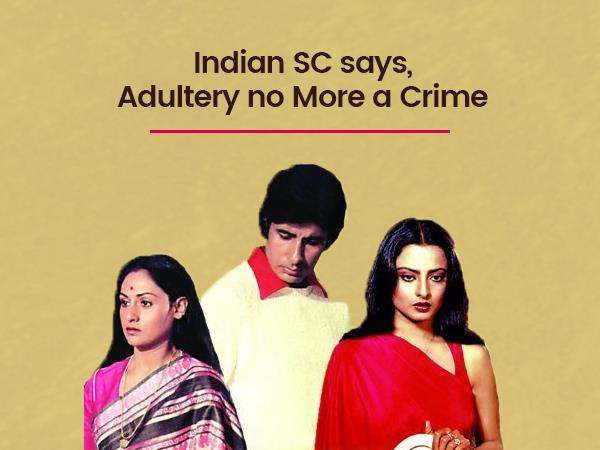Adultery is not a crime even though, “without a shadow of doubt”, it can be grounds for divorce, the Supreme Court said today, scrapping a 158-year old law that punished a man for an affair but not the woman, treating her as “property”. “A man having sexual intercourse with a married woman is not a crime.” said Chief Justice Dipak Misra, calling the Victorian adultery law arbitrary.
Three judges in a five-member constitution bench held that making adultery a crime is retrograde and would mean “punishing unhappy people”. Most countries have abolished law against adultery, the court said. “Any law which affects individual dignity, equity of women in a civilised society invites the wrath of the Constitution,” the Chief Justice said, reading out the verdict.
“Any provision treating woman with inequality is not constitutional,” Justice Misra said. The wife can’t be treated as chattel, said the court. The centre had defended the law saying adultery must remain a crime so that the sanctity of marriage can be protected, after a petition called for the law to be scrapped as it does not treat men and women equally.
The constitution bench had reserved its verdict in August. The hearing in the case by the bench, which also comprised justices RF Nariman, AM Khanwilkar, DY Chandrachud and Indu Malhotra, went on for six days and had begun on August 1.
The centre had said in court that adultery is a public wrong which causes mental and physical injury to the spouse, children and the family. “It is an action willingly and knowingly done with the knowledge that it would hurt the spouse, the children and the family. Such intentional action which impinges on the sanctity of marriage and sexual fidelity encompassed in marriage, which forms the backbone of the Indian society, has been classified and defined by the Indian State as a criminal offence in exercise of its Constitution powers.” it said.
The top court had questioned the government how the law preserved the “sanctity” when the extramarital affair becomes non-punishable if the woman’s husband stands by her. “Dichotomy is manifest (in Section 497)” as “husband can only have control over his emotion and cannot ask wife to do this or that”, the constitution bench had told the government. Section 497 of the Indian Penal Code says: “Whoever has sexual intercourse with a person who is and whom he knows or has reason to believe to be the wife of another man, without the consent or connivance of that man, such sexual intercourse not amounting to the offence of rape, is guilty of the offence of adultery.”








,